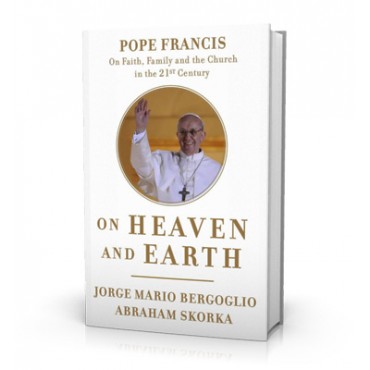With a specialized education in both chemistry and theology, Pope Francis is no stranger to the relationship between science and faith. “Science has its autonomy that must be respected and encouraged,” the future pope said in a recently published book. “There is no reason to meddle with scientists’ autonomy, except when they overstep their field and get into the transcendent.” Pope Francis discussed the responsibility of science in the book “On Heaven and Earth: Pope Francis on Faith, Family and the Church in the 21st Century.” The book, published in April by Image Books, a division of Random House, is a conversation between then-Cardinal Jorge Mario Bergoglio of Buenos Aires, Argentina, and Rabbi Abraham Skorka, an Argentine biophysicist and rector of the Latin American Rabbinical Seminary. In the introduction to the book, the future pope wrote, “Dialogue is born from a respectful attitude toward the other person … it supposes that we can make room in our heart for their point of view.”
While the fight to preserve life is often centered on abortion and capital punishment, the future Pope Francis also warned against a more subtle form of disregard for human dignity: what he called “covert euthanasia. In this consumerist, hedonist and narcissistic society, we are accustomed to the idea that there are people that are disposable,” among them, the elderly, then-Cardinal Jorge Mario Bergoglio said. Citing examples of intentional neglect, the future pope said: “I believe that today there is covert euthanasia: Our social security pays up until a certain amount of treatment and then says ‘May God help you.'”





